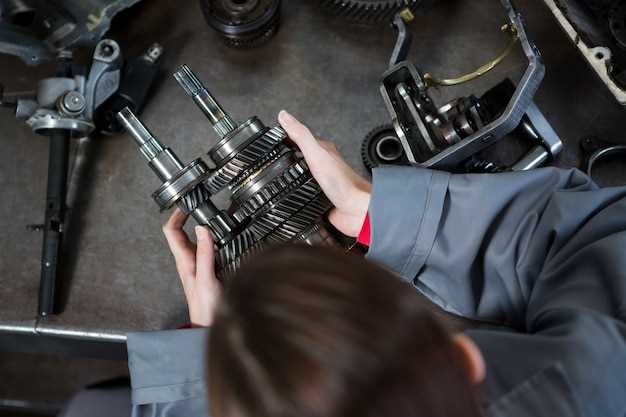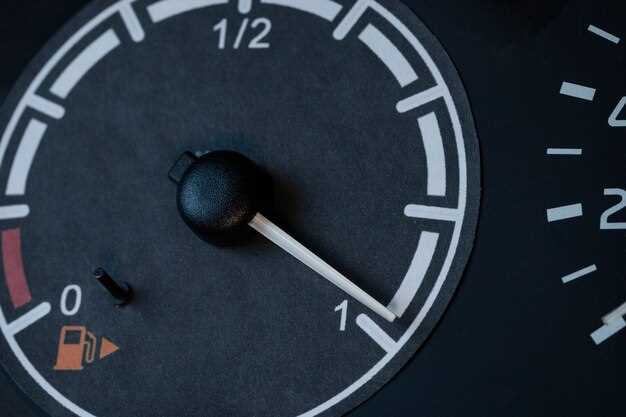
The decision between carbureted and EFI (Electronic Fuel Injection) systems is a significant one for vehicle owners and enthusiasts. Each fuel delivery system presents its unique advantages and drawbacks that can impact performance, efficiency, and maintenance. Understanding these differences is crucial for making an informed choice tailored to your specific driving needs and mechanical preferences.
Carburetors have long been the staple of performance vehicles, celebrated for their simplicity and ease of tuning. Their mechanical nature allows drivers to manually adjust the air-fuel mixture, providing a sense of connection and control over the vehicle’s performance. However, they may struggle with fuel efficiency, emissions compliance, and altitude adjustments. For many, the appeal lies in the vintage charm and nostalgia associated with these systems.
On the other hand, EFI systems have gained popularity for their advanced technology and superior efficiency. These systems automatically adjust the fuel mixture based on various parameters, including temperature and air pressure, delivering optimal performance under a wide range of conditions. EFI systems are generally more reliable and environmentally friendly, making them an appealing choice for drivers who prioritize modern performance and ease of use. However, they can be more complex and expensive to repair or modify.
In this article, we will explore the essential factors to consider when choosing between carbureted and EFI systems for your vehicle. By evaluating performance characteristics, cost implications, and maintenance requirements, you can determine which system aligns best with your driving experience and automotive goals.
Understanding the Core Differences Between Carburetors and EFI Systems

Carburetors and Electronic Fuel Injection (EFI) systems serve the same fundamental purpose: to mix air and fuel for combustion in an engine. However, they operate on different principles and come with distinct advantages and disadvantages.
Carburetors rely on mechanical processes to draw fuel into the airflow using a venturi effect. When air passes through the carburetor, it creates a low-pressure zone that pulls fuel from the jets into the airstream. This design is relatively simple, making carburetors easy to install and repair. They offer a classic driving experience, cherished by many enthusiasts. However, carburetors can be less efficient, particularly in varying conditions, as they lack the ability to adjust fuel delivery based on real-time engine demands.
In contrast, EFI systems utilize sensors to monitor various engine parameters, including air temperature, throttle position, and load. This data is processed by an onboard computer, which precisely calculates the optimal fuel-air mixture for different operating conditions. As a result, EFI systems provide better fuel efficiency, improved emissions control, and enhanced performance. They also enable more straightforward cold starting and smoother idling compared to carburetors.
Another significant difference lies in tuning capabilities. Carburetors require manual adjustments of jets and air-fuel mixtures, which can be cumbersome and time-consuming. EFI systems offer tuning flexibility via electronic adjustments, often allowing users to modify performance parameters using software without mechanical changes to the engine.
Maintenance is also a critical differentiator. Carburetors may need periodic cleaning and rebuilding to maintain optimal performance, while EFI systems generally require less frequent maintenance due to their sealed nature. However, when EFI systems do encounter problems, they may necessitate specialized diagnostic tools, complicating repairs.
Ultimately, the choice between carburetors and EFI systems often boils down to personal preference and intended use. Carburetors appeal to those valuing simplicity and tradition, while EFI systems attract those seeking efficiency and advanced technology.
Evaluating Performance Impacts on Fuel Efficiency and Engine Power
When choosing between carbureted and electronically fuel-injected (EFI) systems, understanding the performance impacts on fuel efficiency and engine power is crucial. Carburetors rely on a mechanical process for fuel delivery, which can lead to less precise fuel metering compared to EFI systems. This imprecision often results in less optimal air-fuel ratios, particularly at varying throttle positions, which can compromise fuel efficiency.
EFI systems utilize sensors and advanced algorithms to adjust the fuel delivery in real-time, ensuring a more efficient combustion process. This precision not only enhances fuel efficiency but also translates to improved engine power. With EFI, the vehicle can achieve maximum power output by maintaining the ideal air-fuel mixture under different driving conditions, while carbureted systems may struggle to adapt quickly to changes, causing potential power loss.
Another significant factor to consider is the response time of the engine. EFI systems typically offer better throttle response due to their electronic control capabilities, which allow for quicker adjustments to fuel delivery than the mechanical operation of carburetors. This responsiveness can enhance the driving experience, particularly in performance-oriented applications, where quick acceleration and instantaneous power delivery are paramount.
Additionally, EFI systems often improve cold start performance and driveability, which may not be as smooth with a carbureted setup. Carburetors can face challenges in cold weather, leading to hard starts and rough running until the engine warms up. EFI systems, on the other hand, can adjust fuel delivery immediately based on temperature readings, leading to consistent performance across different climates.
In summary, while both carbureted and EFI systems have their advantages, the enhanced fuel efficiency and engine power associated with EFI systems make them a compelling option for many vehicle owners. They deliver more precise fuel management, better throttle response, and improved adaptability to varying conditions, all of which contribute to superior overall performance.
Navigating Installation and Maintenance Considerations for Both Systems

When choosing between carbureted and EFI (Electronic Fuel Injection) systems, understanding the installation and maintenance aspects is crucial for long-term satisfaction and performance. Each system has its unique requirements that can significantly impact both your vehicle’s operation and your experience as a vehicle owner.
Installation
Carburetors are generally simpler and can be installed with less technical knowledge than EFI systems. A carbureted system typically requires basic tools and mechanical skills, as it consists of fewer components that are fairly straightforward to assemble. However, fine-tuning and adjustments are often necessary to achieve optimal performance, which may require some trial and error.
Conversely, EFI systems can be more complex due to the electronic components involved. Installation may demand specialized tools and a deeper understanding of engine management. An EFI system often requires sensors, a wiring harness, and an engine control unit (ECU). Depending on the vehicle, integration with existing electronic systems can be challenging and might necessitate professional installation.
Maintenance
Maintenance for carbureted systems primarily revolves around cleaning and adjustments. Over time, carburetors can accumulate dirt and deposits that hinder performance. Regularly checking float levels, adjusting idle speeds, and ensuring the fuel mixture is correct are key maintenance tasks. Basic carburetor rebuild kits are readily available, making it feasible for DIY enthusiasts to perform maintenance.
EFI systems, while typically more reliable and requiring less frequent adjustments, demand careful attention to the electronic components. Diagnostics play a critical role in identifying issues, as EFI systems utilize onboard diagnostics that can offer error codes. Maintenance may involve software updates, checking wire connections, and replacing sensors, which can be more technical than carburetor upkeep.
In terms of long-term maintenance, EFI systems often have benefits such as improved fuel efficiency and reduced emissions, which can lead to lower operating costs. However, they tend to be more expensive to repair due to the complexity of the systems.
Conclusion
Ultimately, the decision between carbureted and EFI systems hinges on your individual preferences, skills, and goals for your vehicle. Understanding the installation and maintenance considerations of each will empower you to make a well-informed choice that aligns with your needs.













